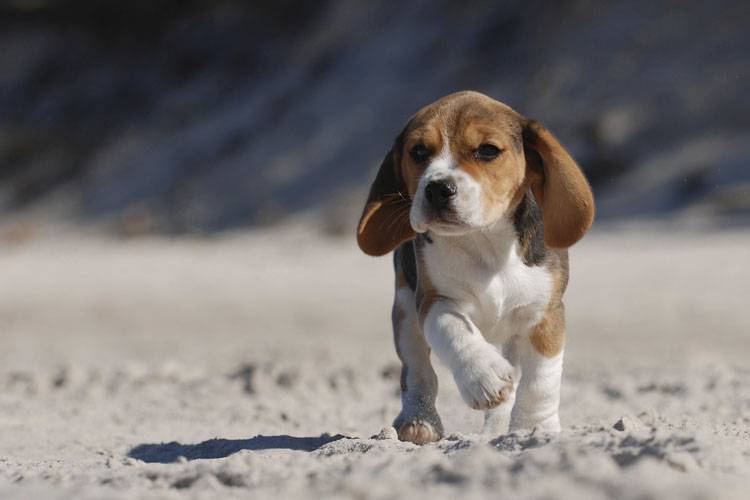Puppy Development Stages
Socialization is an unending process and must start very early in a puppy’s life. Your puppy must have ongoing exposure to all of life’s experiences. The goal of socialization is to help your dog learn to act appropriately around people and other animals as well as in the many public and private social situations of human life. A properly socialized puppy is well adjusted and makes a good life-long companion.
3 Critical Periods of Puppy Development
There are three well defined critical periods in the development of a dog, from puppy to adult, that need special attention in the work of socialization.
Stage 1
The first stage begins between the age of seven to 12 weeks. This time frame is generally viewed as the most critical for puppy socialization. During this period, your dog’s unacceptable behaviors and attitudes resulting from his experiences are the most difficult to correct later on.
Stages 2 and 3
The second period ranges from eight to 10 months and the third starts at around 18 months of age. In recognizing that these periods are when experiences will have a significant impact on your dog, you must plan and set up activities to ensure positive results.
RELATED: Puppy Socialization Tips
Importance of Distraction Exposure
As with any type of dog training, the factors of distance, duration, degree of difficulty and distraction level must be integrated into the learning experience. You don’t want to expose your puppy to heavy traffic with loud noises the first time you take him outside. Instead, take him out in a quiet area for a limited amount of time and then work up to integrating more distractions.
Introduce Distractors Slowly
Expose your puppy to as many sounds, sights, smells, people, animals and locations as possible, beginning as soon as the puppy arrives in your home.
Take your dog out to the vet, pet store, school yard (when children are playing), car, elevator and busy street as well as near the garbage truck and buses, bicycles and skateboards, and around people of all ages, sex and ethnic backgrounds. The more new and positive things a puppy sees and experiences in these critical weeks, the better.
Ensure Positive Experiences
Make sure each of the following events is pleasant and non-threatening. If your puppy’s first experience with something is painful and frightening, you’re defeating your purpose. In fact, you may create a phobia that may last a lifetime. It’s better to go too slow and ensure your puppy is not frightened or injured than to rush and force your pup to meet new things and people too soon.
Consider Puppy Kindergarten
Puppy kindergarten is a great tool to include in your socialization process. This class will help your puppy with his puppy to puppy social skills. It also introduces him to a variety of people and sounds. You want to make sure these classes are well supervised by a qualified dog trainer in a safe environment.
You may also like: Housebreaking a Puppy





